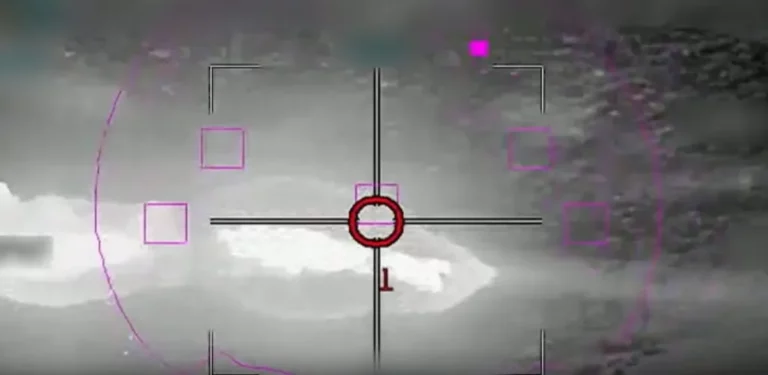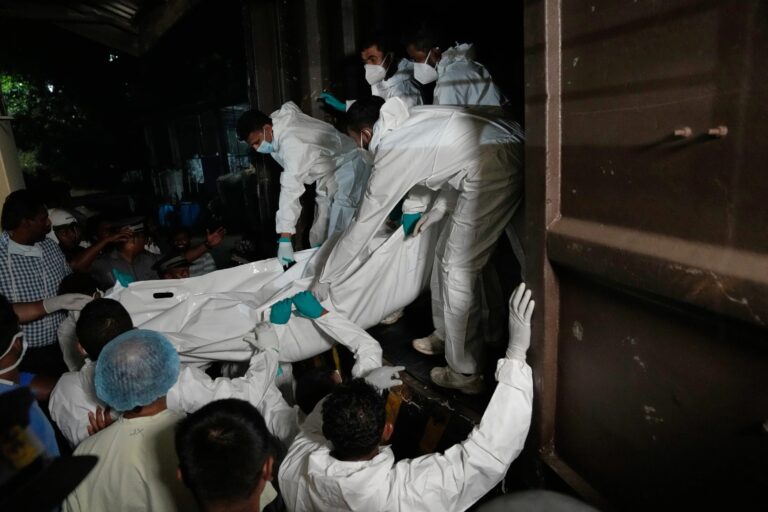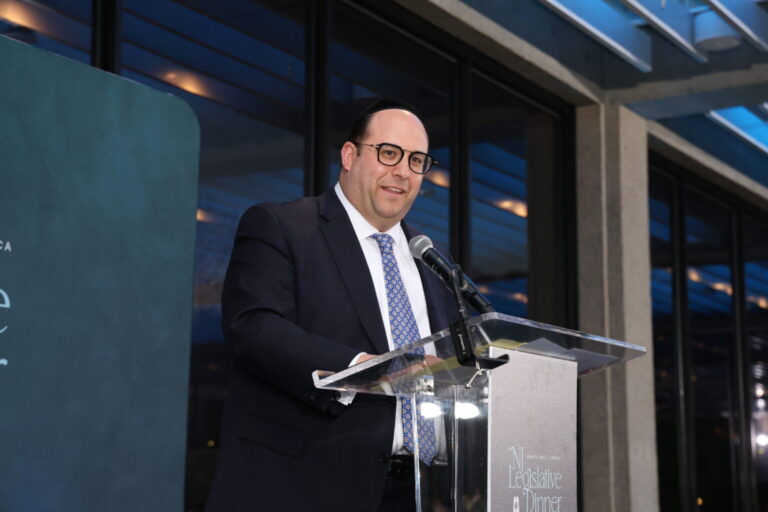 [By Rabbi Yair Hoffman]
[By Rabbi Yair Hoffman]
It could be known as the “Great Modern-Orthodox/Yeshivesh Divide,” although it has not yet entered the list of “Shidduch questions” that are generally posed to parents of children who have now entered the phase of dating. Is it halachically proper to formally celebrate Thanksgiving with a turkey dinner with one’s family?
This is not to say that the Yeshiva community does not express appreciation for the wonderful freedoms that this country has championed both for its citizens and for peoples throughout the world.
The greatest of our Rabbis have stated that the United States is a “malchus shel Chessed – a Kingdom of Lovingkindness” and that our thoughts and prayers should express appreciation for the wonderful nation om which we live. Indeed, one Rosh Yeshiva once stated, “I would rather be a street-sweeper in America where I have the religious freedom to learn Torah, than a Rabbi in Communist Russia.”
The questions rather, however, are, is it permitted to express one’s appreciation within the context of following the rituals of the Thanksgiving holiday? We may further ask, what is the exact nature of the Thanksgiving holiday? From a halachic perspective, is it a religious holiday or a secular holiday? And what, exactly, is the halachic definition of a religious holiday?
It is clear that these are the questions that must be resolved and addressed. They must be addressed using logic and reason and without emotion. No question of law or halacha should be addressed with emotion as the underlying motivation, as noble as the motivation may be. Each person should, of course, address the question to one’s own Rav or Posaik.
So let us begin. The issue at hand is the prohibition of “Ubechukosaihem lo sailechu” (VaYikra 18:3). What are its ramifications and parameters? The Shulchan Aruch and Rama (Yore Deah 178:1) discuss the parameters: “We do not walk in the customs of the Ovdei Kochavim..(Ramah) Rather, one should be separate from them in one’s dress and in his other actions. This is only prohibited in matters that they do which involve immodesty.. or in a matter that they do as a custom or law with no basis to it.. and it contains within it a smattering of Avodas Kochavim that they have from their ancestors..”
The underlying issue is, therefore, does Thanksgiving contain within it a smattering of Avodas Kochavim that they have from their ancestors?
The Gedolim have issued their opinions on the matter. Rav Yitzchok Hutner clearly forbade the celebration of Thanksgiving (heard from his student, Rabbi Yaakov Feitman), while Rav Moshe Feinstein and Rav Mordechai Gifter had more lenient approaches. Below is a translation of Rav Moshe Feinstein’s view found in his Igros Moshe (YD 4:11).
“And in the matter of participating with those who consider Thanksgiving as a sort of holiday to make a feast. It would seem that:
(1)Since in the books of their religion this day is not mentioned as a holiday, and also that they are not obligated in holding a meal and; (2)Since it is a day of commemoration for the people of the country, in which he is also happy in the country that he came to reside in now or from before, we do not have a lav prohibition in rejoicing at such a feast, nor in the consumption of turkey. And we find similar to this in Kiddushin 66a, that Yannai the King made a simcha for the victorious capturing in the war of Kuchalis in the wilderness. They ate vegetables there to commemorate it. But it is certainly forbidden to establish it as an obligation and as a Mitzvah. Rather it may be a voluntary celebration now. In this manner, without making it an obligation and a Mitzvah, he may do so.
But I do hold that nonetheless it is forbidden to make this a permanent celebration. Only in that year that Yannai the king captured did he make it a simcha but not a permanent one. There is also the prohibition of adding on to the Torah. Even though one can question whether it is a lav – nonetheless, it is certainly forbidden. “
Other Poskim, however, held to the more strict view that Thanksgiving does fall under the Ramah’s rubric of “a smattering of Avodas Kochavim that they have from their ancestors.” The history of Thanksgiving can be quite informative in understanding this position.
The pilgrims, or Puritans, were, by and large, Christian religious refugees from England. They differed slightly from the Puritans that had remained in England. They conceived of themselves as the new Israelites, entering the promised land. They did take many of their names from the “Old Testament,” but they also believed strongly in their Christian heritage. Many of them died in this new land in which they arrived. The end of 1622 and the beginning of 1623 were particularly harsh months. They had survived the winter, and that summer – they celebrated.
The first celebration took place on July 30th, 1623. In 1789, a resolution was presented to Congress to establish Thanksgiving as a national holiday. It was accepted and Thursday, November 26th 1789, was chosen as the day.
In 1817, New York State adopted Thanksgiving Day as an annual custom. By the middle of the 19th century many other states also celebrated a Thanksgiving Day. In 1863, President Abraham Lincoln appointed a national day of Thanksgiving. Since then, many presidents have issued a Thanksgiving Day proclamation, usually designating the fourth Thursday of each November as the holiday.
Rav Feinstein zt”l applied the criterion of the day “not being mentioned in the books of their religion” as a determining factor as to whether or not a particular day might be considered a religious holiday or a national holiday.
But does a religion have to be so official? What if a group of people breaks off from a church? The “break-away church” may not have official “books of their religion” – yet we would clearly categorize their practices and observances as a religion.
Let’s take, for example, the Anglicans that were in this country at the very beginnings of the United States. In the 1770’s, the Anglicans in this country were in a slightly awkward position. They were loyal Americans and yet they still belonged to the Church of England, whose leader was the King of England.
What did these American Anglicans do? They broke away.
Would one imagine that any religious practice that they observed would not be considered Avodah Zarah? Later, they formed the Episcopalian Church. But until that point they were a breakaway without official books or laws.
Who were the pilgrims? They were Puritans who were religious refugees from England. To quote Bradford Smith, the author of Bradford of Plymouth:
Puritanism in England was essentially a movement within the established church for the purifying of that church – for ministers godly and able to teach, for a simplifying of ritual, for a return to the virtues of primitive Christianity. There was nothing revolutionary about the main body of its doctrine. . Its innovating principle was in the idea that the Bible, rather than any established religious hierarchy, was the final authority. Therefore every man, every individual, had direct access to the word of G-d. It was the Puritan’s aim to reconstruct and purify not only the church, but individual conduct and all the institutions men live by.
Our next question is also paramount. What was their concept of G-d? The pilgrims were Puritans who believed in the Christian concept of the trinity.
So here we have a holiday established by a breakaway group from the Church of England the purpose of which is to thank G-d, or their concept of G-d, for having saved them from that harsh winter. Their concept of G-d does not coincide with the Judaic idea of G-d’s Absolute Unity. One can easily understand why these Poskim do not agree with Rav Feinstein’s position.
The conclusion?
Rav Moshe Feinstein did rule that one may eat turkey on Thanksgiving and eat a meal together with family at this time as long as one does not make it into a hard and fast rule. Those who wish to follow this position certainly have whom to rely upon.
Others who question this understanding of the nature of the holiday, should certainly not observe it if they feel uncomfortable. If they feel that it involves a smattering of Avodah Zarah – they should certainly refrain. Once again, these issues should be decided through logic and not through an emotional appeal or zeal. It should also be presented to one’s Rav or Posaik.
Everyone, however should take the time to express gratitude to Hashem for the beautiful country we have. Not doing so, when everyone else is expressing their gratitude smacks of a lack of gratitude. In order that it not be something reserved specifically for this day, however, it might be worthwhile to express this gratitude on a grander scale than just one mere day.
The author can be reached at [email protected]











36 Responses
This is reason number 65464 what’s wrong with Judaism. Thanksgiving is a day when most people are off from work (which is why the Kollel guys can find reasons to make this assur). It’s a day when families can get together and enjoy a nice meal.
That should be the end of the story. Not everything has to have a pilpul and drash associated with it.
Rav Soloveitchik z’tz’l held shiur early on Thanksgiving morning so that he could return to Boston to celebrate the holiday with his family.
While Christians in the US and Canada do celebrate Thanksgiving Day (Canadians in October), I am unaware of any Christian Church for which the day appears on its official liturgical calendar. Most Christian churches in America do not have any special services at all for the day (or even any services at all). However, the oldest Jewish congregation in America still maintains its 225 year old mesorah for a special liturgy on the day, so arguably Thanksgiving Day is more a Jewish religious holiday than it is a Christian religious holiday.
Thinking of the United States as ‘the beautiful country we have’ is a far more fundamental problem than eating some turkey. Some of us currently reside in the United States but the only beautiful country we have is Eretz Yisrael: ‘ארץ חמדה טובה שהנחיל לאבותינו’.
“not being mentioned in the books of their religion”
He was probably correctly referring to the fact that it is not mentioned as one of their holy days.
A lot of Jews celebrate January 1 as the secular “New Year”. Of course anyone who has read the first mishnah in Rosh Hashanah knows that we Jews have four new years and that isn’t one of them. What most Jews do not know is that in many countries including the US January 1 is a Holy Day of Obligation for Roman Catholics in which they are required to attend mass. January 1 is clearly a holy day for some Christians, but Thanksgiving is not. One rabbi I spoke to about this told me that he has just given up trying to convince Jews that observing January 1 as a holiday is highly halachically problematic because people just won’t listen.
Love turkey, matza stuffing, cranberry sauce. Love family eating together and enjoying. Leftovers in a turkey pot pie for Shabbos. Thanks to the markets that run specials on turkey. Any “Rabbi” that dictates my menu can eat pork and enjoy it!
It’s amazing how the people posting comments down here are such tremendous talmidei chachamim that they can actually give opinions on whether R’ Moshe Feinstein or Rav Hutner was right or not. I didn’t realize until now that great poskim of our generation post comments on this website. The Yeshiva World should compile a sefer with all of their brilliant halachic insights so that their great wisdom will be preserved for talmidim of future generations.
Gotta love ywn comments section where someone named vashti can deem herself worthy to interject herself into a rav moshe/rav hutner machlokes.
Her middle name is Cleopatra, and she is right on with her comments. And I suppose you are one of those that eats pizza on thanksgiving…davka
“they can actually give opinions on whether R’ Moshe Feinstein or Rav Hutner was right or not”
Thanksgiving was enthusiastically celebrated by Orthodox Jews in America more than a century before Rav Moshe or Rav Hutner was born, even before the term “Orthodox” had ever been applied to Jews. Shearith Israel, the original synagogue in New York, celebrated the 1789 Thanksgiving Day described in the article with a special service including some of the Hallel tehillim and no Tachanun. It still follows this nusach for Thanksgiving to this day.
An even more interesting question is whether football is kosher! It is associated with all kinds of physical injury and severe long term neurological damage.
I would argue that the appropriate cuisine for Thanksgiving Day is Indian food. The Hebrew word for India is הֹדּוּ, as in
אֲחַשְׁוֵרוֹשׁ הַמֹּלֵךְ מֵהֹדּוּ וְעַד-כּוּשׁ
Thank you hagaon harav charlie hall, shlita, for clearing everything up with your 7 posts and dismissing the need for an igros moshe teshuva on the topic.
I don’t want to think of Achashveirosh, it brings up bad memories for me.
#7- I’m sure that both harav Moshe Feinstein or harav Hutner would have agreed whole heatedly with my previous post.
And Charliehall is somech on harav Soloveitchik who was also a tremendous talmid chacham and a bar samcha.
“Thanksgiving was enthusiastically celebrated by Orthodox Jews in America more than a century before Rav Moshe or Rav Hutner was born.”
No doubt Rav Hutner and Rav Moshe never thought of this brilliant argument. If only they had read the comment section on YWN, then they would have gotten the halacha right.
I have to agree though, the football question would be an interesting one.
#1 your invited to join the hindus if Judaism is too much for you…
#1 …..also we have freedom of religion here’ so rabbi Hoffman has every right to say his psak halacha and explaining how he came to his conclusion. you don’t have to follow it. so whats the problem. Im afraid the whole shulchen urech is ‘whats the problem with judaism’ according to you so just ditch it
#3 not that we accept what you just mentioned about the rav and I don’t believe it …but igros moshe, vayoel moshe, munchas yitzchok, mishnas aharon, klausenberger rebbe rav hutner ..etcetc didn’t celebrate thanksgiving so why don’t you mention them…oh, sorry, these backward gettho shtetel yidden don’t count
Charlie hall—if you really are a talmid of r solovechik, regardless of the fact that he came out differenlty than rav moshe in his psak, he’d be embarrassed to have u as his talmid for proferring the “thanksgiving preceded rav moshe by a century” argument.
ikros moshe paskens beferish that’s its bechikosayhem lo saylaychu yoreh dayeh 4 simen 12
Attention readers & writers, the psak of Reb Moishe, Reb Hutner & Reb Soloveitch all came into existence in the 70s.
Before those days, Yeshiva & day schools gave off for a long Thanksgiving weekend because parents were off from work, no busses, english teachers were out & it was customarily to meet with out of town family on those days. There were sales on meats, veggies & perfect time to join together, no special ceremony, tefillos or even “turkey” talk. Most families did NOT even know the origin of the day off just enjoyed it.
“if you really are a talmid of r solovechik”
I am not. But I do spell his name correctly, with a “t”.
“dismissing the need for an igros moshe teshuva on the topic”
Who is dismissing anyone? Rav Moshe z’tz’l was born in 1895. The first national Thanksgiving holiday was in 1789. What were Jews supposed to do for over a century? The mesorah was established.
21, minhag hamakom (and minhag 100 years) of American Jewry was to celebrate Thanksgiving. In halacha, that is indeed a valid argument. After all, don’t we have tons of seforim offering valid arguments for chassidim not eating in a sukkah on Shmini Atzeres? Or for those in Chutz La’aretz to not duchan daily?
19, I think you skipped logic class in school. I fail to see how your second idea follows your first.
“these backward gettho shtetel yidden don’t count”
I would never use such language to describe a great rabbi.
“hagaon harav charlie hall, shlita”
I’m not a rabbi.
The idea of designating one day to express thanks is not a Jewish concept. Gratitude and appreciation for what we have should be expressed all the time; we don’t need a special day once a year for that.
If you want a nice meal together with your family-that’s what we have Shabbos for, that’s what we have Yomim Tovim for. It’s not like we never get to do that, why run after an idea that isn’t Jewish?
By the way, it’s totally different when you have secular family. I was not talking about that in my previous comment.
#10 we can enumerate a lot of other ‘halahos’ those ‘orthodox’ jews did, nebech, because they became sort of assimilated. lets not tailk about their 2nd 3 rd generation
29, I think your first sentence is factually incorrect.
Thanksgiving is like Shabbos with TV
“It could be known as the “Great Modern-Orthodox/Yeshivesh Divide,” although it has not yet entered the list of “Shidduch questions” that are generally posed to parents of children who have now entered the phase of dating. Is it halachically proper to formally celebrate Thanksgiving with a turkey dinner with one’s family?”
Even if such a reality might be true, what is the point of framing the question this way?
(Also, although I don’t, some might find the attempted humorous hyperbole about shidduch questions offensive.)
Aseh maat ve emor harbeh- Actually, pashtus Rav Moshe did not know about the Shuls celebrating before he came to America. There is Laz Larishonim.
I already did Thanksgiving back at the end of Tishrei. It’s called Succos, and it’s what they based thanksgiving on.
This country has gone to pot and is getting worse by the day.
Looking forward to pizza this Thursday ….
Ps- the biggest holiday for me is NOT to cook.
Pps– any ladies get a laugh at the way the goyim need a count down on how to prepare? Three weeks before make your menu, two weeks before, iron your linens, one week before start your shopping … BWAHAHAHAHAHA! They should try doing a three day Yom tov, thanksgiving on steroids x6.